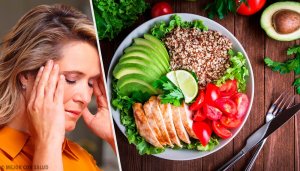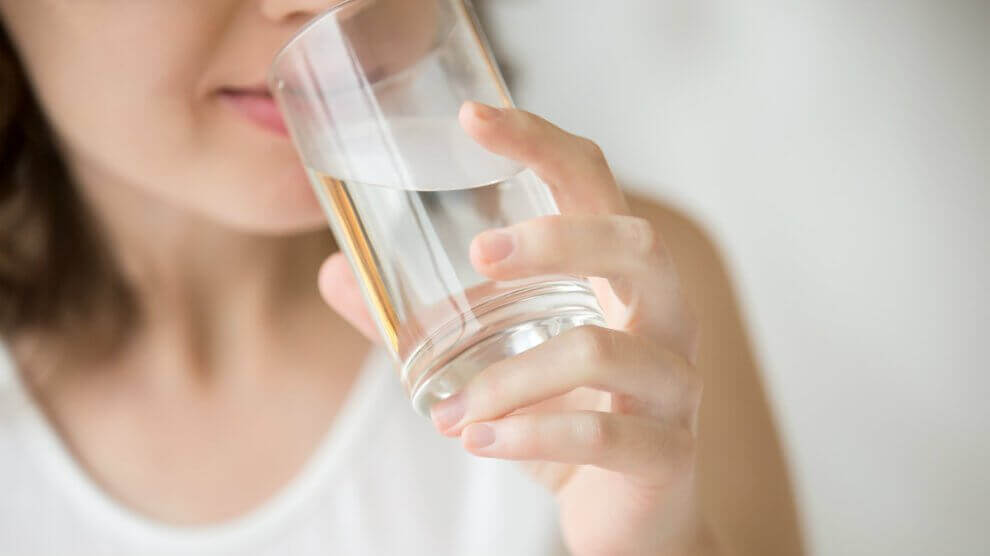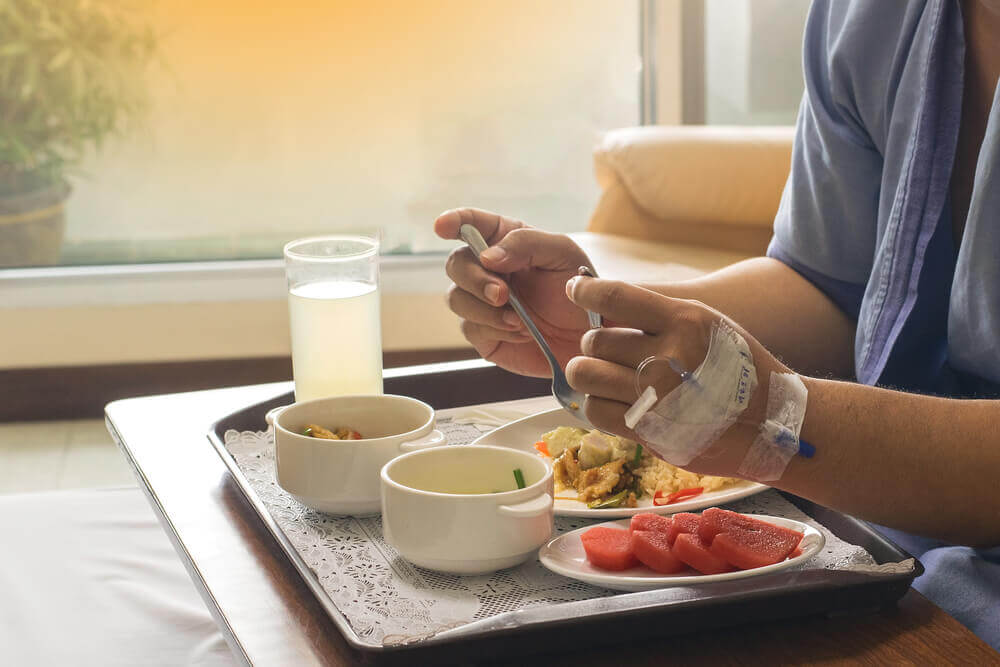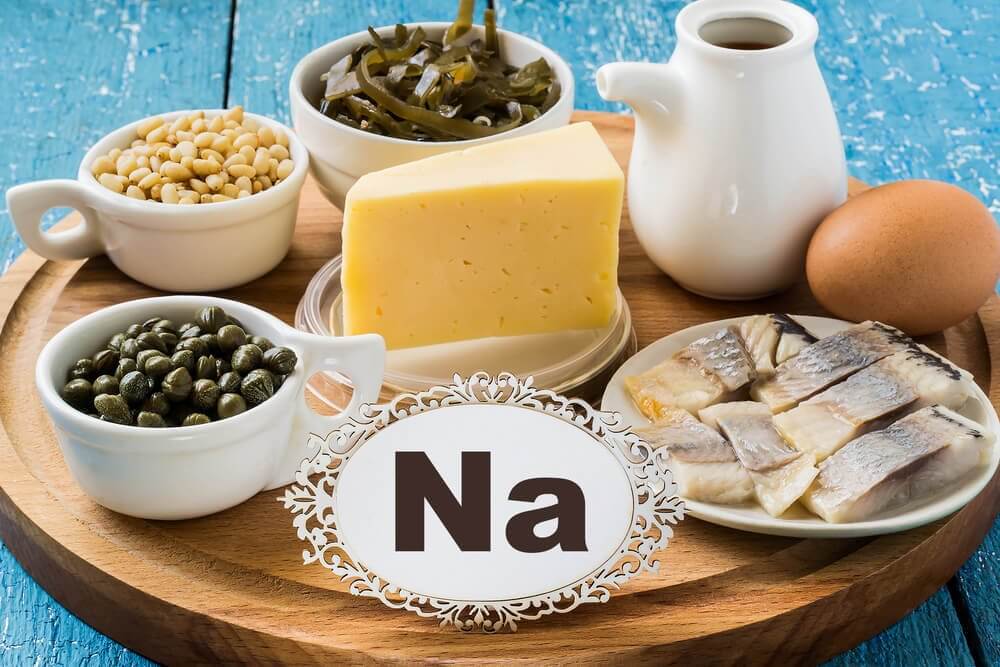Proper Nutrition for Hypotensive Patients

What is hypotension?
Hypotension is the medical term given to low blood pressure. It refers to a decrease in the normal rhythm of the heartbeat.
When the pressure of blood flowing through the arteries decreases, the body’s organs stop receiving the amount of blood they need to function.
What is the ideal diet for hypotensive patients? What things should they eat and what should they not?
In this article, we’ll answer these questions.
Symptoms of hypotension
Low blood pressure commonly generates some symptoms, including:
- Fainting
- Dizziness
- Blurry vision
- Confusion or disorientation
- Drowsiness
- Sweating
- Sickness
- Pallor
- Headache
- Fatigue
- Ringing in the ears
- Hypothermia (cold hands and feet)
Also read: 8 Tips to Correctly Take Your Blood Pressure at Home
Causes of hypotension

Decreases in blood pressure have various causes. Some of the most common ones are:
- Changes in posture. Getting up quickly can cause very short-lived hypotension.
- Dehydration. Insufficient fluid intake can cause low blood pressure.
- Physical constitution. Some people with a thin body type can constantly suffer from hypotension. It is a condition that is related to your physical build.
- Consumption of drugs. Ingesting diuretics, analgesics, psychotropics and drugs to treat circulatory diseases.
- Cardiovascular diseases. Like, for example, cardiac arrhythmias.
- Endocrine disorders. Hypotension can be a symptom of a malfunction of the thyroid, pituitary or adrenal glands or of the pancreas.
Recommended diet for hypotensive patients
A proper diet can significantly improve the symptoms of hypotension.
Fluid intake

Since dehydration is one of the causes of low blood pressure, you should drink 2 to 3 liters a day to avoid it. The same recommendation applies for hypotension due to heat stroke. The recommended beverage is mainly water, since it helps all of the body’s organs function properly.
Diluted natural fruit juices and herbal teas are also recommended. It is advisable to consume all drinks without sugar in order to avoid obesity and other health problems.
Coffee is recommended in small doses. In the case of hypotension, it can help relieve the symptoms temporarily. However, an excess can produce tachycardia and nervousness.
Alcoholic beverages are not recommended. Alcohol alters the circulatory system in different ways and stimulates the elimination of bodily fluids resulting in dehydration.
When to eat during the day

Eating small portions six times a day also keeps blood glucose levels stable. And this decreases the chances of suffering from hypotension.
Visit this article: 8 Foods You Should Eat to Manage Your Hypotension
Increase the amount of sodium in your diet

Nuts such as hazelnuts, pistachios, almonds, sunflower seeds and peanuts contain significant amounts of sodium. In addition, they are rich in vitamin B, which has multiple health benefits, including contributing to the nervous system.
In addition, cheese and turkey are other good options for the diet of hypotensive patients due to their sodium content.
Although it may relieve the symptoms of an episode of hypotension, sodium intake is not recommended in all cases. It is not recommended during pregnancy, as it can cause water retention in pregnant women.
It is also not recommended if the hypotension is related to renal failure, since sodium is harmful for these kinds of patients. Finally, it’s necessary to watch one’s sodium intake in cases of heart disease.
Foods to avoid

- Sweets and desserts, in excess.
- Sugar-rich drinks such as soft drinks or canned beverages.
- Refined flours.
- Saturated fats contained in fried or processed foods.
- Foods rich in chemicals and preservatives are harmful to one’s health in all cases.
General recommendations
The diet for people suffering from hypotension should follow the basic criteria of any healthy diet.
First of all, we recommend consuming balanced foods: balanced proteins and carbohydrates that should be consumed at regular times.
Finally, hypotensive patients should accompany their diet with an exercise routine that stimulates the activation of the circulatory system.
All cited sources were thoroughly reviewed by our team to ensure their quality, reliability, currency, and validity. The bibliography of this article was considered reliable and of academic or scientific accuracy.
- Malik VS, Hu FB. Sugar-Sweetened Beverages and Cardiometabolic Health: An Update of the Evidence. Nutrients. 2019 Aug 8;11(8):1840. doi: 10.3390/nu11081840. PMID: 31398911; PMCID: PMC6723421.
- Piano MR. Alcohol’s Effects on the Cardiovascular System. Alcohol Res. 2017;38(2):219-241. PMID: 28988575; PMCID: PMC5513687.
- Grillo A, Salvi L, Coruzzi P, Salvi P, Parati G. Sodium Intake and Hypertension. Nutrients. 2019 Aug 21;11(9):1970. doi: 10.3390/nu11091970. PMID: 31438636; PMCID: PMC6770596.
This text is provided for informational purposes only and does not replace consultation with a professional. If in doubt, consult your specialist.








